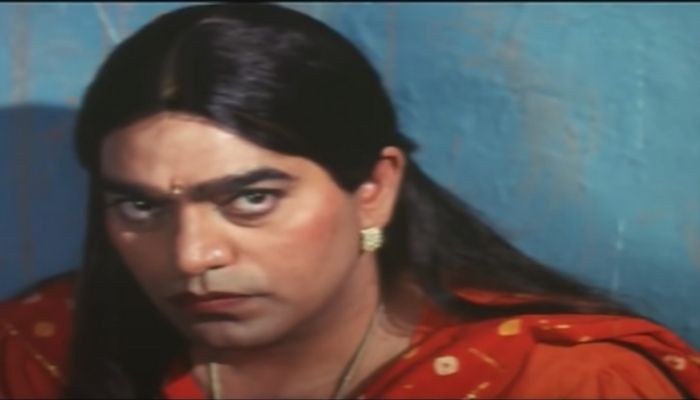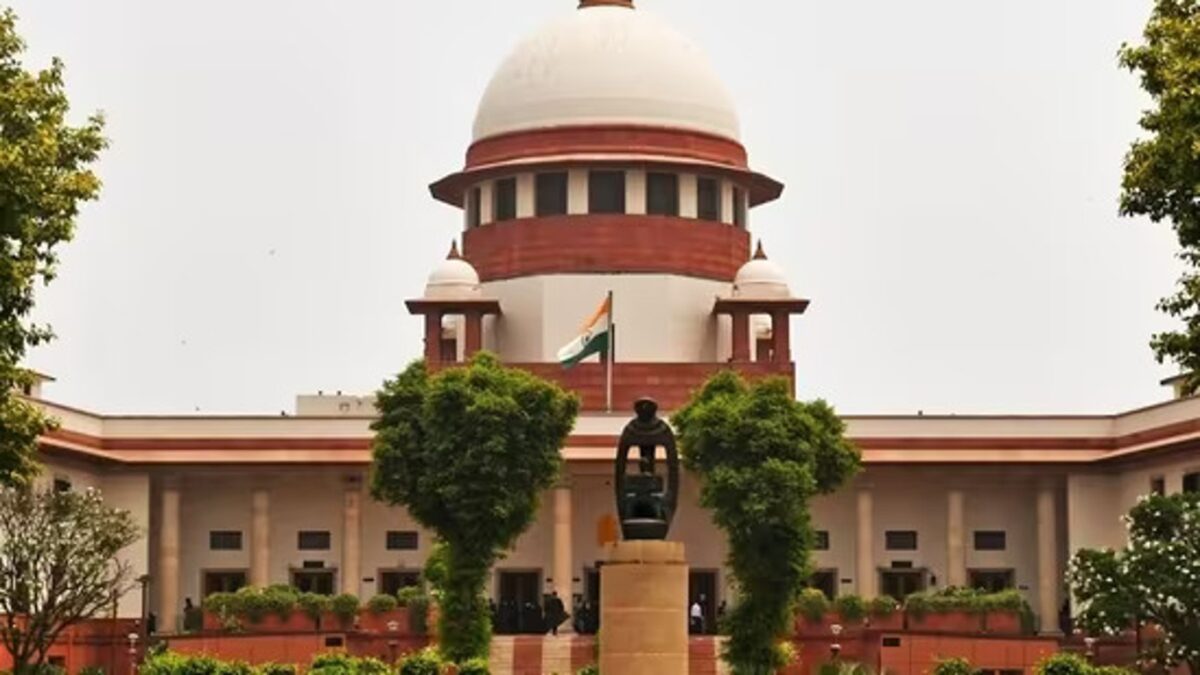Pati, Patni Aur Panga And Three Other Times Bollywood Failed The Trans Community

Written by: Sheena Verma
One would think by 2020 popular Hindi content would take a few leaps in their representation of the transgender community, among a hundred other things it needs be working on. More urgently, we need to talk about the recently released, Pati Patni aur Panga, a series that claims to be progressive but is actually a disguised attempt to reinforce casual transphobia. In this piece, I pick four instances where popular content makers have misrepresented the trans community.
1) Pati, Patni Aur Panga
Pati, Patni Aur Panga is a short series that recently aired on MX Player. Adah Sharma plays a transwoman (Shivani) who has recently undergone a Sex Reaffirmation Surgery (Male to Female). Shivani later marries a cis-male person (Romanchak), played by Naveen Kasturia.
On finding out that Shivani is a transwoman, Romanchak gives a transphobic reaction, which the writers pass off as humour. Even after Shivani makes it amply clear that she has transitioned, her husband is seen screaming, “I have married a guy!”
Unfortunately, this isn’t the only problematic thing about the series. In one of the scenes, Shivani is seen urinating in a standing position, implying that she has a penis. Inevitably, the series attracted severe criticism from the trans community. Dr. Trinetra Haldar Gummaraju, Karnataka’s first trans doctor, expressed her disapproval through a comment on Adah Sharma’s Instagram profile.
“Fun fact – we don’t pee standing up after we’ve had surgery, which you would know if you had spoken to one transgender person before acting in this blasphemous, caricaturish, stereotypical, defamatory role. We need representation, not clowns in moustaches peeing standing up. Do better, or don’t even try. Yours sincerely, a transgender woman who’s extremely pissed at the degree of nonsense being peddled as representation.”
The incredible amount of ignorance displayed by the makers of the film is mind-numbing. This comes six years after the Hon’ble Supreme Court’s judgment in NALSA v. Union of India,[1] wherein it recognised a trans person’s right to self-identify as male, female, or the third gender. The same was codified last year through the Transgender Persons (Protection of Rights) Act, 2019. [2] With so much information easily accessible to the public, it seems like the writers made a deliberate choice to disrespect the trans community for the sake of cheap punchlines.
Ungender spoke to trans rights activist and Miss Trans Queen India 2019, Ms. Bonita Singh Rajput.
She said, “The series is absolutely rubbish and disrespectful to the entire trans community. Making a positive point towards the end of the show is immaterial if they’re constantly disregarding the fact that transwomen are real women. They don’t realise what it takes for a trans person to undergo the whole transitioning process. We put our lives at stake to be ourselves. And just when I thought the series couldn’t get any worse, I see the scene where Adah Sharma’s character is peeing in a standing position. All of this just caters to the stereotypes that cis men have formed for transwomen.”
2) Laxmii
The Akshay Kumar starrer has been at the receiving end of severe criticism by the trans community. Kumar plays Asif, who is possessed by the spirit of a revengeful transwoman. While the filmmakers proclaim that the film is progressive, it has done little to break stereotypes. Instead, it reinforced the stereotypical image that portrays trans women as loud and scary maniacs. Kanmani Ray, a law student and transwoman, talks about Laxmii.
“The way Akshay was trying to act ‘feminine’, the movement of the hands, the neck, the body posture were precisely the ways in which cis men and women have tried to imitate and mock my expressions all these years. It is not empowerment, it is a stereotypical, transphobic imitation, and a bad one at that.”
In the NALSA judgment, the Supreme Court laid heavy emphasis on social justice. Social justice does not mean mere equality before the law on paper, but that the spirit of the Constitution should be translated into action. However, thanks to Bollywood’s offensive and monotonous representation of transgenders, the community is far from social equality and justice.
3) Kya Kool Hai Hum
Kya Kool Hai Hum is another Bollywood movie that perpetuates transphobic stereotypes. Bobby Darling plays Kiran, a transwoman who falls in love with a cis man (Riteish Deshmukh). It is evident from Kiran’s character that she identifies as a woman, however, she is constantly addressed by male pronouns. Her sister, Dr. Rekha (Neha Dhupia) is seen saying, “Kiran is not my sister. He is my brother.”
Throughout the movie, Kiran’s character is misgendered and mocked, with some of the characters reacting hysterically upon seeing her face for the first time.
In the NALSA judgment, it was held that non-recognition of a trans person’s self-perceived gender identity results in them facing extreme social discrimination, and is therefore violative of Article 14, 15, 16, 19, and 21 of the Constitution.
Bobby Darling, a famous actor, is perhaps the only transwoman who made it big in Bollywood. But this came at the cost of sexual abuse, mental trauma, and humiliating roles. In an interview with Zoom, Bobby shared her experience of a contest held in Chennai. “They harassed me in every way possible, and even tried to touch my private parts. But I was determined to win because I had to get cast in a film,” said Bobby.
Fortunately, India now has a separate law that deals with sexual harassment at workplace. The POSH Act, 2013 protects every woman from sexual harassment at workplace. A transgender person who identifies as a woman is entitled to the same protection [3] as a cis woman, under the POSH Act.
4) Sangharsh
Sangharsh came out in 1999 and is perhaps one of Bollywood’s extreme dehumanisation of the trans community. Ashutosh Rana plays Lajja Shankar Pandey who is a radically religious transwoman involved in multiple child abductions and murders.



Pandey is shown as a barbaric, psychopathic being who sacrifices children to attain immortality. This portrayal gave way to a rigid generalisation of trans people, that has stayed intact even twenty years later.
Conclusion
The NALSA judgment that formed the foundation of the Transgender Persons Act 2019 highlighted that Right to Life under Article 21 means a meaningful life with dignity and not mere animal existence. However, the constant vilification of trans people by the entertainment industry denies them a life with dignity and opportunities for their all-round growth. It is worth mentioning that there have been a few exceptions where Bollywood has been somewhat successful in its representation of trans people.
A case in point is Tamanna (1997) in which Paresh Rawal plays Tikku, a transwoman who raises an abandoned girl on her own. A more recent example would be the character of Kuckoo in Sacred Games, played by Kubbra Sait, a cis woman. While Kuckoo’s character was portrayed in a positive light, it does not neutralise or compensate for the damage caused by casting a cis-gendered person for the role. This is proof of how the entertainment industry shamelessly perpetuates the exclusion of trans people while capitalising on their oppression. The lack of appropriate representation will inevitably keep the status quo intact.
The film industry should make conscious efforts to properly represent the trans community. For starters, their portrayal of transgenders should be consistent with the NALSA judgment. Secondly, filmmakers need to stop casting cis men and women for the roles of transgenders. If they do cast cis-gendered persons for such roles, they should do so with caution, and should ideally seek the approval of trans folks.
About the author: Sheena Verma is a third-year student at National Law School, Punjab with an interest in gender laws and competition law.
References:
[1] National Legal Services Authority v. Union of India, (2014) 5 SCC 438.
[2] Section 4, The Transgender Persons (Protection of Rights) Act, 2019.
[3] supra note 1.
Ungender Insights is the product of our learning from advisory work at Ungender. Our team specializes in advising workplaces on workplace diversity and inclusion. Write to us at contact@ungender.in to understand how we can partner with your organization to build a more inclusive workplace.
Read our insights about diversity, legal updates and industry knowledge on workplace inclusion at Ungender Insights. Visit our Blog.
Sign up to stay up-to-date with our free e-mail newsletter.
The above insights are a product of our learning from our advisory work at Ungender. Our Team specialises in advising workplaces on gender centric laws.
or email us at contact@ungender.in




